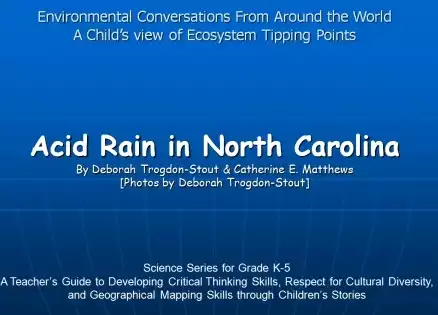PowerPoint: EcoTipping Points Minibooks
Summary
The Mini Books are a set of five stories that illustrate the EcoTipping Point paradigm through case studies of water pollution, acid rain, soil erosion, fish depletion, and water supplies, in three different countries. Each story combines a personal narrative of the impact of an environmental problem with social efforts to address it using cultural geography, graphic explanations of theory, cross-curriculum vocabulary, and critical thinking questions. The Mini Books were created for elementary school but can be appropriate for middle school with minor adaptations.
Also see teaching materials.
Context for Use
Description and Teaching Materials
Teaching Notes and Tips
- Understanding EcoTipping Points through stories (WorldWatch Magazine)
- How do EcoTipping Points work? (The role of vicious cycles and virtuous cycles in EcoTipping Point case studies)
- What does it take to turn decline to restoration? (Ingredients for success in EcoTipping Point case studies)
- EcoTipping Points: Sharing environmental success stories with students (What EcoTipping Points are and how they work, including lessons for teaching EcoTipping Points to K-12 students)
References and Resources
BOOK: Human Ecology - Basic Concepts for Sustainable Development
Identifying Ecotipping Points can be a challenge. Understanding basic human ecology principles can help to map out and evaluate alternatives. This book introduces those principles in an accessible, story-laden format.
Human ecology is the study of how human social systems relate to and interact with the ecological systems on which they depend. This book explains how ecosystems are organized and function; the interactions of human social systems with them; and how social institutions and processes contribute to or conflict with sustainability. It integrates long-standing ecological principles with more recent concepts from complex systems theory. Simple diagrams, examples, and exercises make the concepts easily understood. Ideal as a text for all college levels, as well as AP environmental science and background for K-12 teachers.
Citation
Duffy, D. (2012). PowerPoint: EcoTipping Points Minibooks. Retrieved from http://www.camelclimatechange.org/view/presentation/51cbf3b87896bb431f6addae


![[creative commons]](/images/creativecommons_16.png)